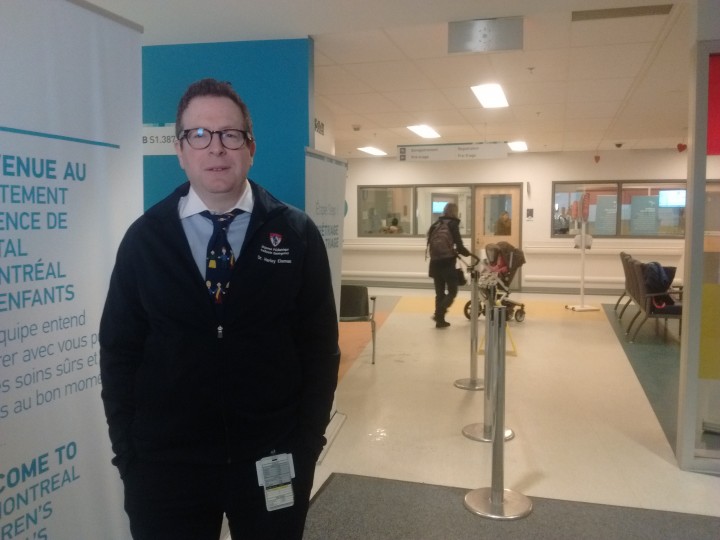While high schools, CEGEPs and universities will remain closed in Quebec until September due to the novel coronavirus pandemic, the province announced tentative plans earlier this week to return elementary school students to the classroom for the final few weeks of the school year.

Schools outside of hard-hit Greater Montreal are set to reopen on May 11, with their Montreal counterparts tentatively expected to do the same on May 19, provided hospitalizations from the virus remain stable or decrease.
Despite attendance not being mandatory, the plan has proved controversial with parents and teachers’ unions, with many concerned about the potential health risks to students and their families.
Dr. Harley Eisman, a pediatric surgeon at the Montreal Children’s Hospital, told Global News Morning the overall risk of sending young children back to the classroom is generally low.
“I think, by and large, children are doing medically quite well,” he said, based on his observations over the course of the pandemic. “We haven’t seen, at least in pediatrics, an increase in respiratory issues or ill patients.”
However, Eisman cautioned that sending children back to school will likely do little to increase herd immunity, or society-wide immunity to the virus, to hamper its further spread. That idea was initially promoted by Premier François Legault last week, though he has since indicated that eventually achieving herd immunity to COVID-19 in Quebec could be a “benefit” of slowly reopening the economy and should not be a goal in and of itself.
“The thing is, at first, we thought that school-age children were efficient spreaders of the virus,” Eisman explained, adding that now, new data is emerging to suggest that may not actually be the case.
“Sending them back to school may not help us increase, or get to that state, of herd immunity.”
In response to concerns that children returning to school could put older or immunosuppressed members of a school community at risk, Eisman said he doesn’t see that being a major issue in the weeks ahead.
“I think that schools are going to be wise,” he explained. “Those who are vulnerable, either schoolchildren, teachers, staff, those who are older, probably will remain at home. I’m not so concerned about the kids.”
Eisman said the real challenge will be ensuring schools can be successfully staffed under these new circumstances.
As well, data to date on COVID-19-related hospitalizations across all age groups has been encouraging and indicates Quebec’s health-care system will be able to handle any increase in cases caused by the loosening of social-distancing measures.
“Certainly, I’m reassured that if kids do get sick, and I think, for the most part, it’ll be a mild illness, certainly, we have the capacity to care,” Eisman said.
He added: “I think that, hopefully, in the next few weeks, the curve we’re seeing in Montreal will abate, and the situation in the senior and long-term care residences will start to resolve itself.”
That, Eisman says, will allow officials to focus on getting schools and businesses back up and running to some degree.





Comments